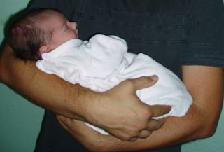Spanish Voting TendenciesLess than two weeks to go for local and regional elections in Spain, el País published an interesting article with the results of a study carried out to describe voting trends in Spain over the past few years. According to the study, rural and industrial areas vote in favour of PSOE (the Spanish Socialist Party) while urban areas tend to vote for the PP (the Peoples’ Party). This political map has remained virtually unchanged since 1995, when there was a large swing in favour of the PP in the local elections.
These voting patterns have recently been examined by electoral experts because it wasn’t always like this. PSOE’s downfall in large urban areas came in 1995. The following year they were defeated in the General elections. This fall in popularity came after a number of national scandals involving the Socialist government of the day. Many Socialist mayors were the first victims of this electoral revolt.
In fact in the local elections of 1995 PSOE only retained power in 5 provincial capitals out of a total of 52. They improved their position in 1999 and again in 2003 but have never recovered from the huge loss of votes in 1995.
Álvaro Cuesta, a leading member of PSOE has been working with a group of experts who have looked into voting behaviour over the last 3 years. The findings show that voting patterns have been affected by an ageing population, higher incomes, and the fact that young people have been forced to move out of cities because of the constant rise in property prices. In addition to these causes other PSOE leaders have also highlighted disenchantment and lack of political activity in certain sectors of the urban population.
The study found that PSOE leads in areas where there are up to 5000 inhabitants. In this group PSOE received a total of 86,000 more votes than the PP. This represents 6390 Town Halls or just 6.57% of the population. PSOE also dominates in places where the population is between 5000 and 20,000 inhabitants – this represents 882 Town Halls which is 19.7% of the population and just 10.87% of all Town Halls. This works out as 250,000 more votes than the PP.
PSOE leads in populations consisting of 20,000 to 50,000 inhabitants which is 14.82% of the total Spanish population, a total of 126,000 more votes.
Out of 123 Town Halls for areas with more than 50,000 inhabitants PSOE is in charge of 61 as oppose to the 50 which are governed by the PP. The other 12 that remain are in the hands of regional parties or nationalists.
However, when it comes to provincial capital cities where the PP is the clearly in the lead in charge of almost double the number of Town Halls . However, in large industrial areas where there is a large working class population most votes are in favour of PSOE.
The study also demonstrated that in populations with between 50,000 and 250,000 inhabitants, which account for 25.1% of the Spanish population, PSOE governs in 54 cities as oppose to 41 cities governed by the PP.
Out of 12 cities consisting of 250,000 to 500,000 inhabitants the PP has 6 Town Halls and PSOE just 4 with the others being governed by Izquierda Unida and the the PNV, the Basque Nationalist Party.
Finally in populations of more than 500,000 both the PP and PSOE are in charge of 3 Town Halls each. Barcelona, Sevilla and Zaragoza are governed by PSOE and Madrid, Valencia and Malaga by the PP.
Labels: society, Spanish politics




